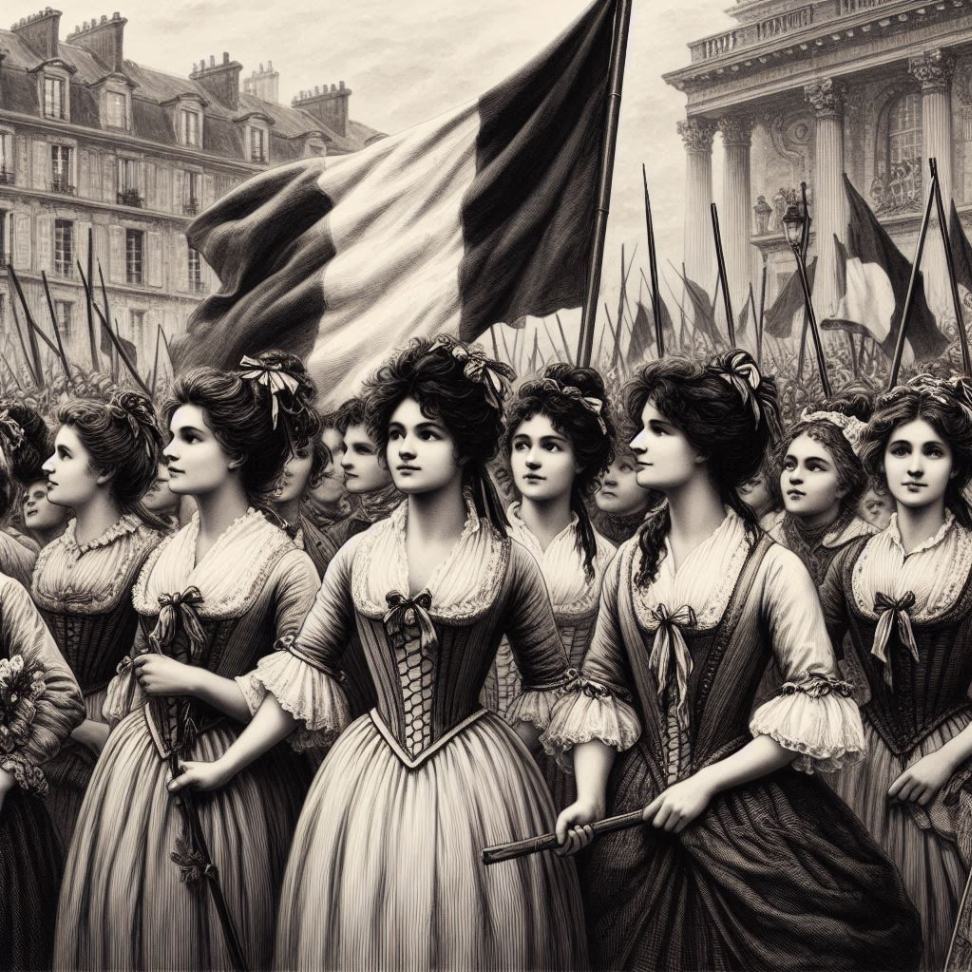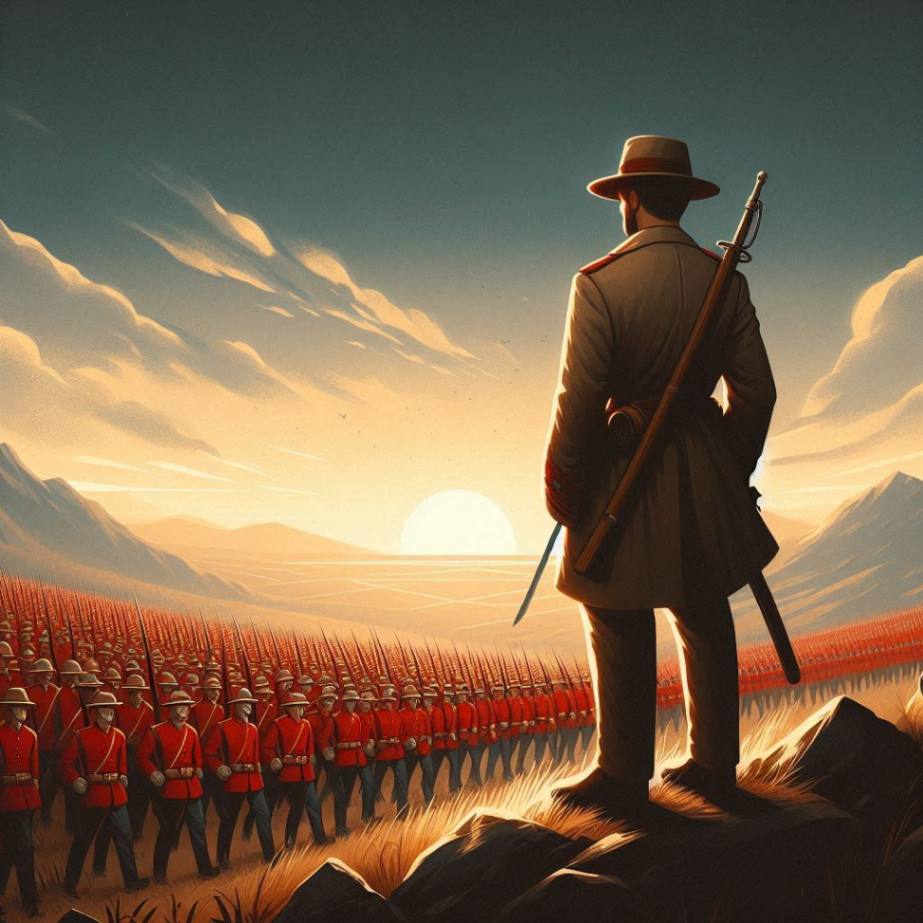Chapter-1 Part-5
What have we learned so far?
In Part 4 of Chapter 1, we understood the emergence of the Middle Class and the ideas of philosophers. In Part 5 of this chapter, We will explore the outbreak of the Revolution.
New Vocabulary
- Outbreak – People start to protest, march, and speak out loud suddenly to show people are unhappy with the government about something. As it happens suddenly there will be changes majorly seen in society(way of living), politics(the way a country is ruled), and economy(how money is handled).
- National Assembly – A representative body or a group of people chosen to represent the entire nation or country.
From Middle-Class Rise to The Outbreak of the Revolution
Formation of the Estates General
- In old France, the King could not raise taxes all by himself.
- He needed to get permission from representatives of 3 Estates:
- The First Estate consisted of the Clergy
- The Second Estate comprised the Noble
- The Third Estate included Farmers, peasants, artisans, landless labourers, servants, merchants, court officials, lawyers, and workers.
- The Estates General comprised these 3 groups.
- King Louis XVI invited the Estates General to meet on 5th May 1789.
- This meeting had last taken place in 1614.
- A very beautiful and special room inside the Versailles Palace was prepared and arranged nicely for the meeting of the Estates General.
Representation in the Estates General Meeting
- The representatives of each estate could make a decision,
- Their decision would be considered as a single vote. so, each estate had 1 vote.
- However, the Third Estate did not accept this rule; they wanted each representative within their estate to have their own vote.
- This idea of one vote per individual came from democratic principles mentioned in the book “The Social Contract,”
- The Book “The Social Contract” was written by the French Philosopher Rousseau.
Third Estate Representatives Leave the Meeting
- The King did not accept the demands of the Third Estate.
- As the king did not accept the demand, the third estate representative left the meeting unhappily
- Third-estate representatives believed they were speaking not just for themselves or their own group but for all the people of France so that their decisions would benefit all French people.
Formation of the National Assembly
- On 20th June 1789, Third Estate representatives gathered at a big indoor tennis court within the Palace of Versailles.
- They declared themselves the National Assembly.
- They officially decided that they were going to work together as a unified group representing all French citizens, not just their own estate.
- They promised each other that they would not leave the tennis court until they finished drafting a constitution for France.
- The constitution refers to a book that contains rules for both the king and the citizens of France. Additionally, this book will also limit the power of the king.
- So, by declaring themselves a National Assembly, they were saying they would stay together and work on creating a fairer system of government for everyone in France.
- Mirabeau and Abbé Sieyès were the main leaders of the Third Estate.

Leadership of Mirabeau
- He is from a rich family
- He believed that France should change and not have a system where some people had special rights just because they were born into wealthy families.
- He wrote articles in a newspaper and spoke to a large crowd of ordinary French citizens who were also at Versailles.
Abbé Sieyès
- He was once a priest, but later he became a writer and thinker.
- He wrote a very important book called ‘What is the Third Estate?’
- In this book, he discussed the importance of people in the Third Estate in society.
Hard Times: Food Shortages and Money Problems
- While the National Assembly was working hard in Versailles to write a constitution for all, ordinary French citizens who were not part of the National Assembly felt worried and unsure about what was going on.
- They didn’t know what these new rules might mean for them, Therefore they felt upset and confused.
- During this time in France, the climate was cold and crops did not grow well.
- As there was no crop, there was not enough food.
- Therefore Bakers increased the cost of bread.
- Instead of selling all the bread, Some Bakers kept some of it for themselves and didn’t sell it to people who needed it, making it more difficult for people who wanted to buy bread
Fall of the Bastille and Peasant Revolts
Long Lines for Bread
- Many people, especially women, stood in a long line at the bakery to buy bread.
- Because they were so upset about waiting for so long, they quickly entered the shops without waiting anymore.
King Sends Soldiers to Control Protests
- As people were angry and protesting about food shortages and high bread prices, the king sent soldiers into Paris to control the protests and maintain peace in France.
- On July 14th, 1798, a very upset group of people forcefully entered and destroyed a place called the Bastille. This event is recognized as the starting point or beginning of the outbreak of the Revolution.”
Farmers Hear Rumors of Crop Destruction and Attacking Rich Landowners
- Farmers living in small towns and villages heard rumours that wealthy landowners had paid criminals to come and destroy their crops.
- Scared farmers in many places grabbed their farming tools like hoes and pitchforks and entered the houses of rich landowners, known as chateaux.
- Farmers looted good grains stored in large amounts by the rich landowners
- Farmers also burnt down documents containing records of how much money they owed to the landowners for things like rent or taxes.
- Because of all this trouble and fighting, many wealthy people left their large homes and moved to other countries nearby because they were afraid of what might happen.
- This event escalated the tensions leading to The Outbreak of the Revolution.
King Louis XVI Accepts the National Assembly
King Agrees to Follow the Constitution
- Because the people were so angry and acting against him, King Louis XVI agreed that the National Assembly was important and said he would follow the rules in a constitution to limit his power.
- This was a big change in power and started many new reforms. The outbreak of the Revolution was becoming more clear and evident.
Abolishment of the Feudal System and Its Economic Impact
- On 4th August 1789, the National Assembly enacted a law to abolish the feudal system, which resulted in:
- The government took away land that belonged to the Church and stopped the Church from collecting certain taxes from people (tithes).
- The government then retained the money that was previously given to the Church, and the land, once sold or used by the government, generated income.
- The people paid tithes as taxes to the Church.
- When the government abolished these taxes, the church no longer received money from tithes instead government kept the money itself.
- Ending the feudal system increased people’s spending on goods and services, which helped grow the economy and brought more taxes to the government.
Summary
- Due to unfair treatment and high collection of tax from the third estate, The French Revolution occurred.
- The French Revolution started with the formation of the National Assembly and ended with events like the Bastille being destroyed.
- The National Assembly was formed by rich and educated people of the third estate. They:
- Framed the Constitution with new Rules.
- Established equality
- Made sure everyone gets an equal opportunity to succeed in life regardless of birth privilege.
- The outbreak of the Revolution brought political and social change in France.
- Therefore, The revolutionaries abolished the feudal system and challenged the king’s power, leading to major changes in France’s future governance.




